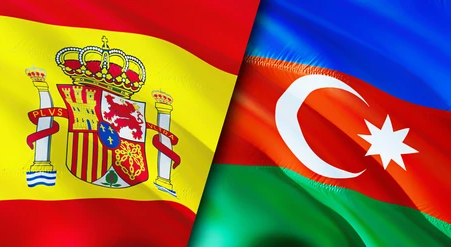Azerbaijan & Spain – Customs in Dialogue
CULTURAL INSIGHTSTRAVEL & DISCOVERYAZERBAIJAN & SPAIN


Azerbaijan & Spain – Customs in Dialogue
Azerbaijan, often called the “Land of Fire,” is a country where East meets West, blending Turkic, Persian, Islamic, and Soviet legacies into a vibrant cultural tapestry. Its customs and traditions are not only alive in Azerbaijan itself but are also cherished and celebrated by Azerbaijanis abroad — including here in Barcelona, through the activities of the Azerbaijani Society in Barcelona (ASB) and Casa Azerbaiyán.
Spain, often described as the “Land of Passion,” is a country where diverse influences — Roman, Visigothic, Islamic, Jewish, and Christian — have shaped a rich and colorful cultural mosaic. Its customs and traditions are deeply rooted in everyday life, from flamenco rhythms and festive processions to family gatherings and regional celebrations.
Exploring Azerbaijani and Spanish customs side by side shows how two different worlds meet — and how much they actually share. Both cultures value family, hospitality, and joy, but express them in unique and colorful ways.
Tea vs Wine
In Azerbaijan, tea (çay) is the heart of hospitality. Served in pear-shaped glasses with sweets, it symbolizes warmth and friendship.
In Spain, wine often accompanies long dinners and toasts of “¡Salud!” to celebrate life and health.
Both drinks go beyond refreshment: they are rituals of connection.
Novruz vs La Mercè
Novruz is one of the most ancient and beloved holidays in Azerbaijan, symbolizing the arrival of spring, renewal, and harmony with nature. Its roots go back thousands of years to Zoroastrian traditions, yet it remains one of the most vibrant celebrations today. Preparation begins weeks before, with the four Çərşənbə (Tuesdays) — Water, Fire, Wind, and Earth — each honoring the awakening of an element of nature. Families grow səməni (sprouted wheat), bake sweets like şəkərbura and paxlava, and light bonfires to jump over, leaving behind the old year’s misfortunes. Novruz is more than a festival; it is a cultural expression of unity, family bonds, and gratitude for life. In 2009, UNESCO recognized it as part of the Intangible Cultural Heritage of Humanity, and since 2010 it has been celebrated as an international holiday. For Azerbaijanis abroad — including in Barcelona — Novruz is a way of keeping alive the warmth of home, even far from their homeland.
La Mercè, held every September in Barcelona, is one of Catalonia’s most iconic and lively celebrations. Dedicated to the city’s patron saint, Mare de Déu de la Mercè, the festival transforms Barcelona into a stage for tradition, creativity, and community life. Over several days, the city fills with castellers (human towers), correfocs (fire runs), giant parades, open-air concerts, circus shows, and art performances. Each year, a guest city is invited to share its culture, making La Mercè an international celebration of diversity. For Barcelonians, it is more than a holiday — it is an expression of identity, pride, and togetherness, where families and friends gather in the streets to enjoy a vibrant mix of heritage and modern creativity. La Mercè is a festival where tradition dances with innovation, embodying the spirit of Barcelona itself.
Music, Dance & Storytelling
From the UNESCO-recognized Mugham to energetic national dances, Azerbaijani culture thrives on rhythm, passion, and storytelling. These traditions are still performed at weddings, community events, and cultural showcases abroad.
Mugham reflects centuries of history and emotion.
Dances like Yalli and Lezginka symbolize unity and joy.
Spain’s soul comes alive through its music and dance. From the passionate rhythms of flamenco in Andalusia to the haunting melodies of Galician bagpipes or the festive beats of Catalan sardana, every region tells its story through performance. Storytelling is equally vibrant — expressed in traditional ballads, poetry, and theater that continue to inspire new generations. Together, these art forms weave a living narrative of Spain’s history, identity, and creativity.
Faith & Family vs Tradition & Family
In Azerbaijan, family is the heart of society. Generations often live close together, sharing daily life and supporting one another. Respect for elders is deeply rooted, and traditions like Novruz, weddings, and community gatherings strengthen bonds across families. Faith also plays a central role: mosques are places not only of prayer but also of community, reflection, and continuity. Whether through religious observances, family meals, or cultural rituals, Azerbaijanis preserve a strong sense of belonging and unity that connects the past with the present.
In Spain, family life and tradition go hand in hand. Families are often large, close-knit, and gatherings around the table — from Sunday paella to festive celebrations — are cherished moments of connection. Spanish traditions, whether it’s Semana Santa processions, Christmas markets, or regional fiestas, are almost always experienced with family and community. Respect for heritage blends with a modern lifestyle, creating a culture where family values are lived daily and passed down with pride. Here, tradition isn’t just about the past — it’s an ongoing way of celebrating life together.
Community Life
Hospitality is one of the cornerstones of Azerbaijani culture. Guests are always treated with the utmost respect, and it is customary to offer tea with sweets and pastries as a welcoming gesture. The phrase “Qonaq Tanrı qonağıdır” (The guest is God’s guest) shows the deep importance placed on treating visitors generously.
Spanish plazas are evening meeting points where neighbors gather, chat, and share life.
Both customs highlight openness and the joy of togetherness.
Why Compare?
By comparing Azerbaijani and Spanish customs, we see how traditions — though different in form — share the same purpose: building community, celebrating life, and creating lasting memories.
At Casa Azerbaiyán in Barcelona, we celebrate both worlds, creating a space where cultures meet, learn from each other, and grow stronger together.
